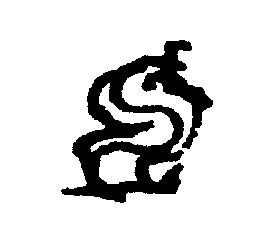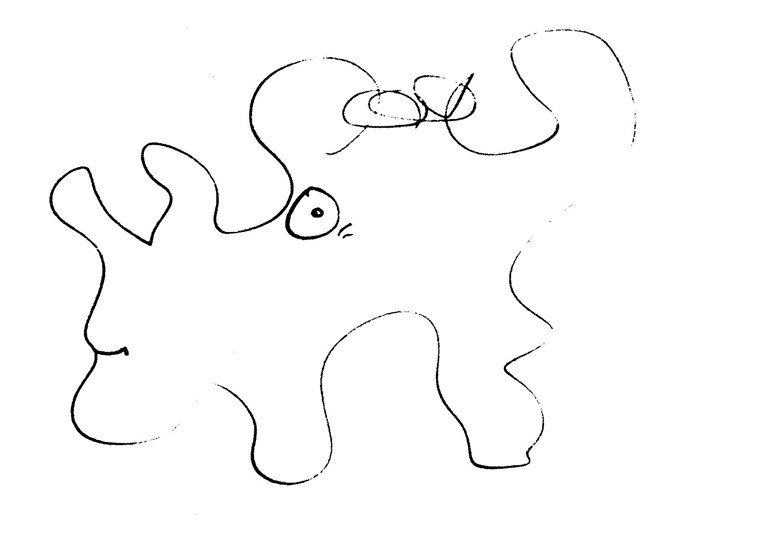Airmail (16 page)
Authors: Robert Bly

Did you receive a copy of
Field?
Please send me the address of János Pilinszky. I’d like to write him a note, and maybe send him the new poem. What language did you use in talking with him?
I’m home now for the winter. It’s such a joy! I’ve moved over to an abandoned country schoolhouse, which I’m using this winter as a study. It has tall windows on two sides so I can see the snowy trees. I’m working on my new book, which will be called
The Shadow Brother
. It will have the long Vietnam poem in it, and the short prose poems that were in
Morning Glory
etc. Then off and on, I work on poems for a new book of Snowy Fields poems (Son of Snowy Fields) which will be called, I think—
Doing Nothing for a Thousand Years
In the evenings we all tell troll stories, and watch Laurel and Hardy movies with a projector Carol got me for Christmas last year. The family are all troll-sensitive, shining-eyed, mad for narratives. Noah told me his first composed story yesterday. He came up and said to me: “A dog went poo-poo on the road, and then he died!”
I said, My goodness, Why did he die?
Noah said firmly, “Because he went poo-poo on the road!”
So there it is, a narrative, involving even the Western genius for cause and effect.
Tomas, I want to know your birth-date. I’m studying astrology.
I end with a little poem I found yesterday in a notebook, must have been written last winter:
My toes call over the dark peoples.
This poem will unwind from inside the reindeer’s horn.
At that call the seas gather themselves
Together, as a man leaps out of bed!

(I guess the reindeer’s horn would have to be an antler, but I’d like a horn that wound around, like a seashell, or a snail shell.
Write soon!
Robert
P.S. There was one beautiful moment in the Wash. rally. About 3:30, some screamers got up. Women’s Liberation types, who wanted to burn down the Justice Dept, and castrate themselves, or something, and the rally could have turned ugly. Suddenly the M.C. said, “We have a statement here, signed by 80 members of the Cleveland Symphony Orchestra, supporting the Moratorium...As a matter of fact, 4 of them have just arrived from Cleveland, and they’re going to play us a string quartet now.” We were all stunned. So 600,000 people sat down. And over the loudspeaker system—a sensitive system, that cost $18,000 for one day—the 4 musicians played a Beethoven String Quartet. It was so marvellous, tears came to everyone’s eyes.
I felt strange—in some sort of time-warp. As if we were all at once protesting against Napoleon!
R.
1-4-70
Dear Robert,
I’m writing in Swedish this time to keep you in practice. Thanks for a long and shimmering letter! But the letter with the long Vietnam poem has gotten lost in transit. Probably it’s been hijacked by someone and has flown to Cuba. I don’t know what “Field” is either. Is it a contraction of “Snowy Fields”? How fantastic it must be to travel around the whole U.S.A. and storm against the administration and give public readings. And then disappear into the wilderness to do nothing for a thousand years. Politician and Guru in the same person, traveling together like Laurel and Hardy.
By surface mail (since I’m poor and stingy) I’m now sending my German translation and Ekelöf’s posthumous book—he wrote it while he was dying of lung cancer. The good thing about the German translation is that Michael Hamburger wrote a letter to me (after 3 years) in which he started to intimate something about the possibility of my being invited to England. He asked me to send the best
English
translations I had and I then discovered that I haven’t got any copies of the translations we did together on Runmarö. Can you send a few of the best?
I’m an idiot! I forgot about Pilinszky’s address! But I’ll very likely get a letter from him and will make a note of the address then. He speaks French and German very well, not English.
Tomas Tranströmer was born on April 15, 1931. The exact moment I don’t know. For God’s sake, drop astrology! We have enough misfortunes threatening us as it is.
I’ll write again soon but am sending a new poem. The word “sisu” probably isn’t in your dictionary. It’s Finnish and is used mostly in the context of sports, especially when describing Finnish athletes. It means something like “tenacity.”
The family sends best wishes. We long to see you all again someday, go sailing around the world! In any case it’s good that you exist.
Tomas
undated (postmarked January 13, 1970)
Dear Tomas,
I answer your letter soon! Meanwhile I send you copies of some translations right away!
Field
is the name of the best new poetry magazine—out of Oberlin—which has 3 of your poems in the first issue, you are as popular in Oberlin 16 Jan, ’70

American poet confused by the world
Dear Tomas,
I found a letter of yours with two poems and a translation of the Barn in Devon!
So I’ll answer a couple of questions there while I am at my “writingmachine,” as you Europeans call it.
This was a stone barn I found while walking in far south England, where there are these marvellous green hills that simply plunge straight into the Atlantic! They roll about a bit like a woman’s stomach and then down they go! I really think the sense of a woman’s stomach must have been in my head even then, because the barn had an overwhelming feeling of a place where we prepare to return to life again, rest a bit before we return to the womb and are born.
In “järteckan” I wanted to suggest that the hoofmarks in heavy dung outside the door are not to be taken as a symbol that the body is filthy, or that life is rotten; they are no symbol of fleshly evil.
The “doors” are those wooden separations, that cattlemen use when they are separating cows into two bunches: two men stand behind it, one man behind each end, and either move it in front of the cow’s nose as he comes up, discouraging him to go back, or open it suddenly so the cow goes through. They are easy to lift, usually about eight or ten feet long. They usually have fresh wood showing somewhere, since they are leaned against walls, and knocked down by the cows later, one of whom always steps on it, and cracks off a piece.

Anyway, the “gate” or whatever you call it, looked so useful, so humble, so lacking in egotism, that it was holy, like an altar. (I’m thinking mainly of those small table-altars on which the Buddhists set their flowers and incense and Buddha-statues.)
“Flopping down” suggests the way a cow lies down, without thinking of manners or whether anyone is watching: it’s a wonderful sight.
The stones that make up the walls of the barn evidently turn at night into the walls of the womb, dark, and to the infant, invisible.
I have just started with “Preludier,” but I have a couple of questions already. The pronouns in “Tvä sanningar” are difficult for me. In the second stanza, does “den” imply a human being, or one of the two “sanningar” mentioned in the stanza before? I’m not sure I understand the third line of the second stanza, “Vad some helst, etc.”
I don’t understand “det” in “Och det är en bat.”
Does the fourth stanza take place completely
away
from the boat land-ing—in a house in the middle of the woods, for example—or does it take place near the water?
Does this boat hook hit any of the dancers? (I know what you’ll say: “Why I really don’t know!”)
The poem about your old apartment and your mother’s apartment is very moving at the end. The telescope, the Quaker thought, and the doves cooing are marvellous.
In that poem, I wonder if you could give me a literal English version of the second sentence—“rader sorg” throws me into confusion.
I’ve done a new version of the rocket-shaver poem! Will send it soon. We think a lot about rockets over here—must have to do with the American virility-complex. Shaving of course is a clear reference to castration-desire—Freud told me that only yesterday. I use the old blade-razor myself—Aaaaaaaaaah! (Of course if your shaving poem is really a castration poem, it makes the pilot’s remark more sensible: “You’re seeing this for the last time!”)
(By the way, I still have one question on that poem: “I kamerans barndom.” Does that mean the early days of the camera when everyone had to hold still for so long; or does it refer to the way children pose so stiffly for photographs?)
Give my love to your beautiful, good, and desirable wife, och flickorna...
(be careful with those razor poems)
Den Norske Medicine-Man
Robert
20 Jan, ’70
Dear Tomas,
I’ve enjoyed your Hen Poem! The seam to the Africa scene may be a little too prominent—I’m not sure. I’ll have to read it ten more times. Also when you say “ette minne” it sounds like the world-traveller bragging. (Naturally those of us who haven’t been to Africa are envious, and hate to have you reminding us of it.) Couldn’t that scene be a
dream,
instead of memory? (We all have dreams!)
“Enligit reglerna”—does that mean “according to the rules”?
I’m not sure how to understand two phrases particularly: “sanninger fran 1912,” and “ett balansnummer.”
But I like it very much! It is eerie, and mysterious, and all the hen section is true to hens. I love hens, and I get terribly cross if writers don’t get true hendom into their hen-lines. You have done beautifully!
Field
should come soon. It is 40 below here this morning. I am working hard. How lazy I am! That must be a Capricorn failing...or maybe a Norwegian-no-longer-having-to-grub-out-trees-in-the-cold-rain-failing. There’s no doubt, the Norwegians have got it too good over here. I’ve got to do more work! It’s a disgrace! One book every five years...laziness!
Write soon!
Your slothful friend,
Robert
Västerås 1-30-70
Dear Robert,
GOOD GRIEF!
Wow!
“The Teeth Mother” has come and I’m knocked out. It is incredibly strong, it’s as if Walt Whitman had been with you, whispering in your ear to give you strength to write on. I’ve read large parts of the poem before in various versions but this compilation is superior. (Except the beginning of section II with the Roman knives—I can imagine that the version in
The Light Around
is lying underneath and providing resonance.) The poem lives both in its details and as a whole. Most remarkable is VI since it is so naively direct and yet strikes so deeply into the soul. But after this you can’t write anything else about Viet Nam. This poem has the character of ULTIMATE, LAST, FINAL STATEMENT. The strangest thing about the poem is that in its incredible bitterness and sorrow it makes the reader feel such love for life, the earth, everything that moves. Strange. Lucky for you that you live protected by snowstorms and all those miles of prairie in Minnesota, so that fame won’t get to be too trying. It must be dreadful to fall into the clutches of that great American fame, all the microphones being thrust at you etc. How do you deal with it? DO YOU HAVE A STOMACH OF THE RIGHT SIZE BY NOW? WHEN A PERSON GETS FAMOUS HE DEVELOPS HIS STOMACH AS AN ACT OF SELF-PROTECTION.
I’ve just driven Emma to the stables and seen to it that she got her favorite horse, a black pony by the name of Sotha. The children ride round and round on the sawdust for almost nothing. Monica is home doing homework. She’s actually begun to study so she can apply to nursing school in a year or so. Svärmor (mother-in-law) is living in the house for the time being to watch the kids when we’re both away. I am somewhat over-excited, owing to the fact that I’m getting ready for a new trip at the expense of the Swedish Institute. Monica says that trips behind THE IRON CURTAIN give me the opportunity to develop the latent paranoia I have. I CAN SMELL A TRAP AT A FAR DISTANCE.
Thanks for the transcriptions of the poetry translations! When I made copies to send to Hamburger I discovered something that’s probably a mistake. In “Night Duty” section II you write “The language marches imperfect step with the boots” but in Swedish it goes “the language marches in step with the boots”—should be “in perfect step.” What I mean of course is that voices on the radio and in politics and public life in general speak a language that marches all too well with the executioners and therefore I, we, must seek a new language that does not collaborate with the executioners.
No. 2 of “Preludes” should go more or less like this in rough translation:
Two truths walk towards one another. One (of the truths) comes from the outside and one from the inside
(and at the place) where they meet you have a chance to catch sight of yourself.
But he (the person, the one) who sees what is going to happen cries in despair:
“Anything! (May anything happen, I can take anything except
that
) if only I escape knowing myself.”
What it means is of course—you have the truth of your inner world (you Robert must understand that) and there is the truth of the outer world. When there is a confrontation of the two your true character is exposed, at this confrontation you get a glimpse of “WHO I AM.” And most people are afraid of that, they want to have the two worlds apart. They can take a lot of suffering, build endlessly defense mechanisms and barriers, even risk their life to escape knowing themselves. “Vadsomhelst” is a typical Swedish colloquialism. “Vadsomhelst, if only my boy gets well” says a mother in desperation to the doctor, for example. It’s a contraction of something much longer, for example “Anything [Vad som helst] would be better than not to...” Or “I can stand anything [vad som helst] except not to...”
[Editor’s note: The following seems to be a continuation, though something may be missing.]
And there is a boat trying to put in (trying to land), trying exactly along here. It will try thousands of times. From the darkness of the wood comes a boat-hook, pushed in through the open window, in among the party guests who have been dancing until they were are warm (getting warm by dancing) eller warmed up by dancing...The boathook is something totally foreign in the party milieu, it’s something from another world, perhaps from Gallilee, it’s frightening, a bit comical also, it’s religious. I don’t know whether these modern party guests are struck by it, maybe I’m the only one who actually sees it come shooting mysteriously in through the window (as if a boat were floating out in the darkness of the forest, trying to land).
Part III.
The apartment where I lived most part of my life is going to be evacuated. Is it now empty of everything. The anchor has let go (has got free, has loosened lost its grip—on the bottom of the sea)—although there still is (a state of ) mourning, it is the lightest flat in the whole city. The truth does not need furniture etc. “råder” means “prevails.” You know it is shortly after a death and I am mourning but at the same time a
lightness
is experienced. You have to leave all this, what is of value is transformed in a sort of light perhaps. For the last time I see my old apartment just as naked as it was when I saw it the first time: blown out, empty. Light only, memories are vanishing...
